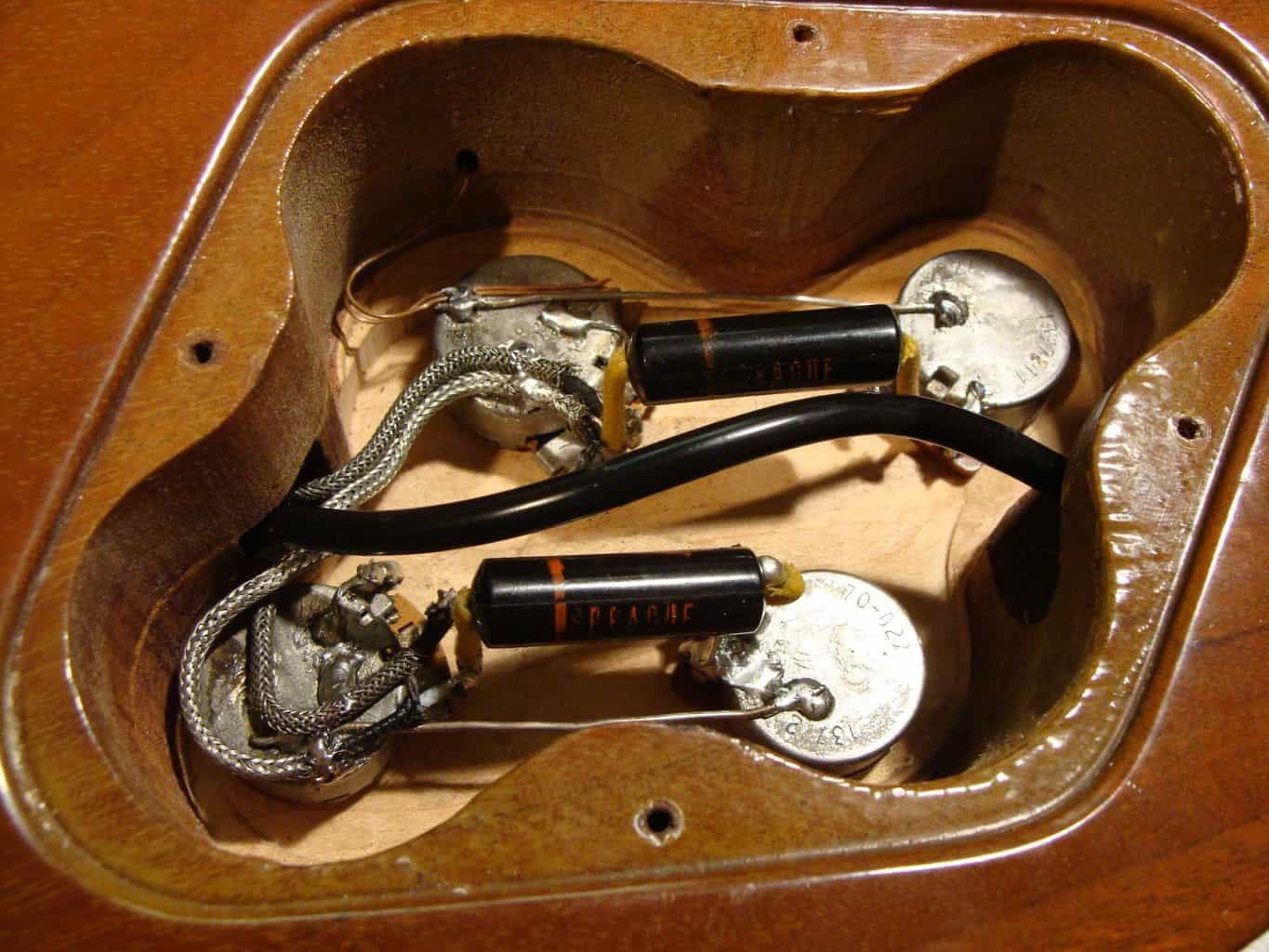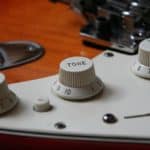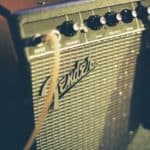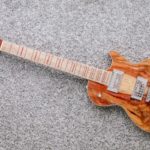Electronics are one of those fundamental parts of a guitar that we usually don’t pay too much attention to.
From wirings to pots to switches, most of the time they are taken for granted. However, I think we should start paying more attention to them.
It’s simple: without the boring electronics inside an electric guitar would be just a boring piece of furniture.
But do guitar electronics affect a guitar’s tone? Here is a short answer:
Guitar electronics can affect the tone of the instrument in different ways. Potentiometers for volume will cut some high end, the same as capacitors for tone knobs. Wires, switches, and output jacks are not really that influential. However, the wiring diagram can determine how volume and tone knobs interact.
For those who want to dive deeper into this topic, in this article I will talk about how do these components affect a guitar’s tone and how much they do.
After that, I will try to answer some of the most common questions related to guitar electronics.
Finally, I will give you my conclusions and recommendations about what to look for in the wiring of a guitar.
Are you ready to get started?
Let’s go!
How do electronics affect tone?
When it comes to electric guitars, it’s important to know that everything has an input on the final tone of the instrument.
Perhaps some things have a greater impact, but the combination of every single detail is what determines the whole.
The case for electronics and wirings is within this claim. Yes, probably the pickups that are the motivation for all the wiring have an overall greater say at defining the sound of the instrument.
However, lower quality wiring, pots, and caps will undoubtedly hinder the final result.
To be specific: Higher quality, professionally installed electronics tend to allow for the sound to come up smoother and help everything sound as intended by the manufacturer.
I will go into more specifics below.
How much do electronics affect tone?
Quantifying the size of the impact electronics can have in the final determination of the sound of a guitar is really very difficult.
What I can say here will be just based on empirical evidence and by no way a scientifically contrasted truth. So, as with everything online, take it with a grain of salt.
In my opinion, the actual benefit of having premium electronics on your guitar is reliability. Things will be less likely to fail and leave you standing on the stage with no sound.
Also, the responsiveness of controls will be improved and there will be a more linear response when adjusting the instrument’s volume, for instance.
Do guitar pots affect tone?
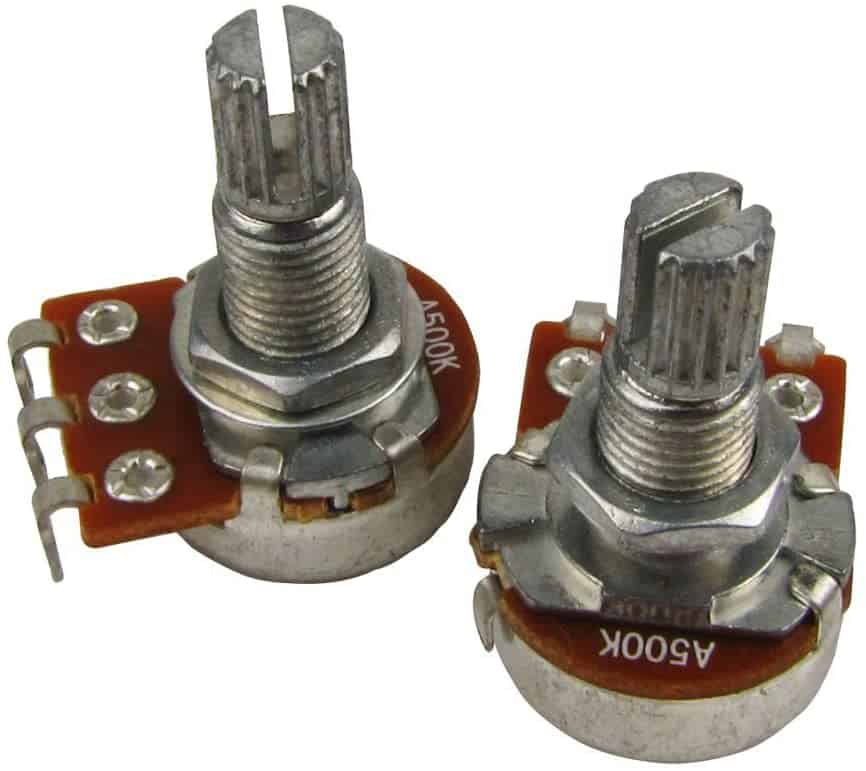
Guitar pots or potentiometers are the electronics that allow you to have an input on the volume or tone of your instrument.
These potentiometers, which act as resistors, come in different potential gradients (K). Different values have different effects on tone.
The normal reading for a humbucker potentiometer is 500k, while single-coil ones usually come in 250k.
Pots with higher potential gradients usually retain more highs, a thing that’s useful in humbuckers to prevent them from sounding muddy.
On the other side of things, pots with a lower K reading will cut some high-end, and that’s why they are used with naturally brighter pickups such as single-coils to prevent them from sounding harsh.
Finally, better quality pots will give you a less scratchy response and show a more linear, smooth, and effective response when rolling down volume or tone.
Do guitar caps affect tone?
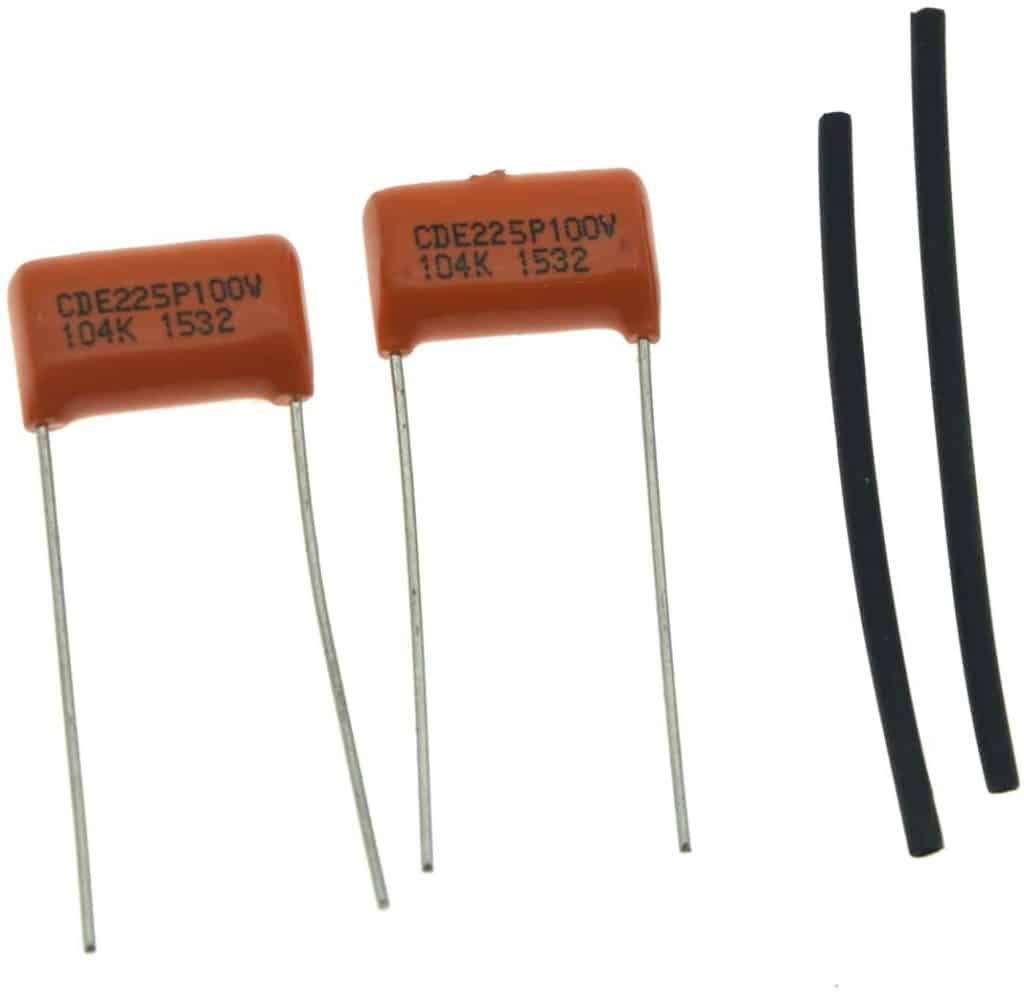
Tone caps or capacitors are additional pieces of electronics tone pots have. You wouldn’t find these attached to the volume pots.
These capacitors are actually what defines how much treble your tone knob will allow you to roll off.
Caps usually come in 3 common measurements: 0.022, 0.047, and 0.1 microfarads. The higher the value, the wider the range of frequencies your tone knob will be able to cut.
Taking this into consideration, caps are not probably the most influential factor in the tone of a guitar, however, they can help you nail the sweet spot for a specific sound you have in mind.
Think of the possibilities you could unlock when combining different voiced pickups with different value caps.
Does pickup wiring affect tone?
In terms of wiring, the wire itself probably wouldn’t make any difference at all. However, the way pickups are wired will have an influence on the responsiveness of the instrument’s controls.
Let me talk to you briefly about the ‘50s wiring and the modern wiring of guitar pickups.
The main difference between these 2 is how the volume and tone pots are connected. I won’t go into any more technical details about it in this article, but feel free to make your own research if you are interested.
The ‘50s wiring allows for the guitar to not lose high frequencies when the volume knob is turned down, however, turning down the tone knob might affect the overall volume.
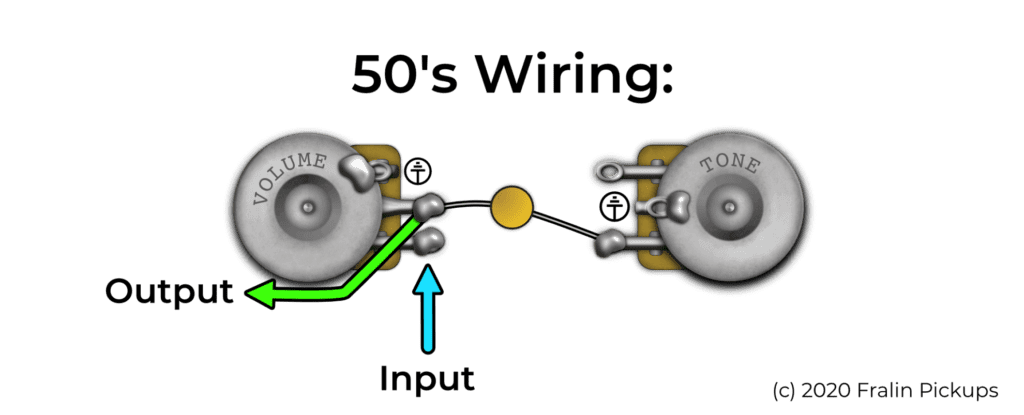
The modern wiring avoids the loss in volume when tweaking the tone knob and gives the instrument an overall smoother tone, however, when the volume knob is turned down, some high-end is lost.
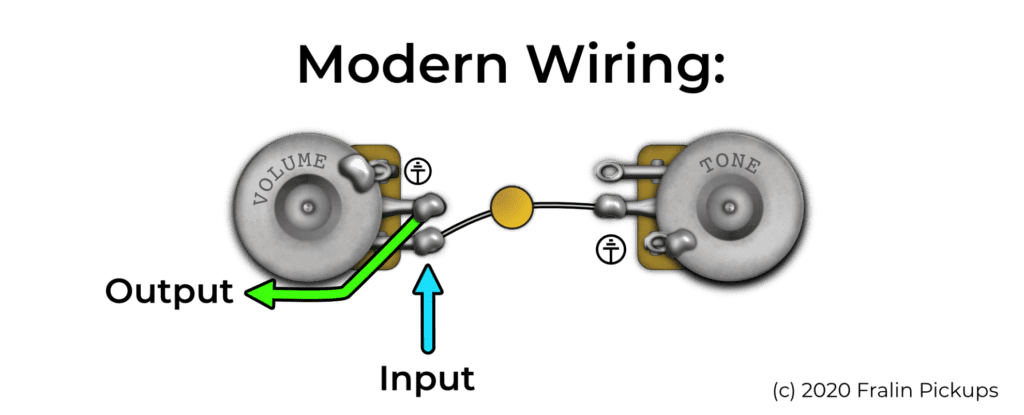
As with everything, no wiring is better than the other, they are just 2 different tonal flavors that you should probably try out by yourself.
Do pickup switches affect tone?
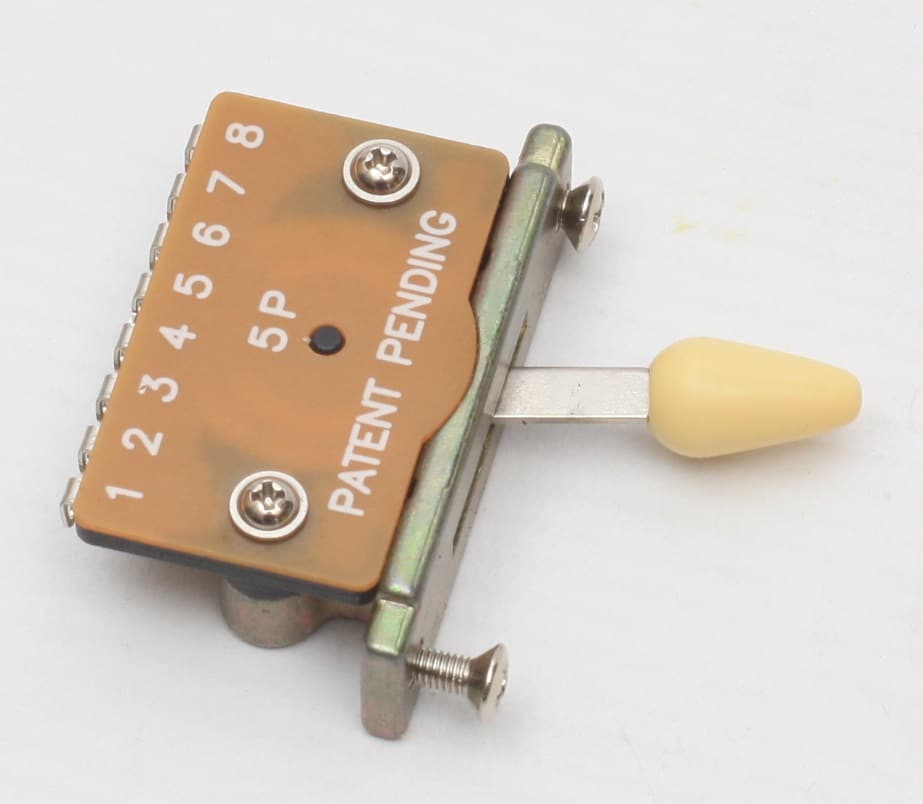
Switches, per se, will not affect the tone of a guitar, as long as you are comparing between 2 that allows you to get the same pickup pairings.
Of course, a 3-way switch in a 3 pickup guitar will limit your tonal possibilities in a manner a 5-way switch wouldn’t. At least conveniently, because it’s possible in some cases to get the in-between combinations on a 3-way switch, however, it will be not as reliable when playing live.
Other kinds of switches, as the PRS rotary switch will offer different combinations and sounds.
Finally, any coil splitting switch will offer you the possibility, as its name implies, of “turning off” one of the coils of a humbucking pickup to make it sound more like a single-coil one.
This is, however, just a fair approximation but never the same thing as having an actual single-coil at your disposal. Split humbuckers are often described as anemic.
But hey, having an extra tonal trick down your sleeve is always nice.
Do output jacks affect tone?
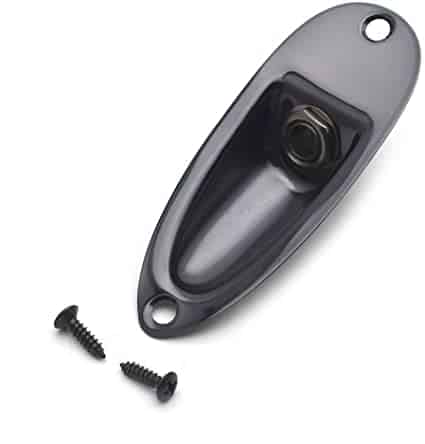
Output jacks can’t affect the tone of a guitar. They are just the endpoint for the signal inside the instrument and their only function is to transmit it to the instrument cable or wireless system.
In terms of output jacks, you should probably worry only about how durable it is, since is one of the highest transit parts of the guitar, and it will probably take a beating during its usable lifespan.
Can better wiring prevent hum?
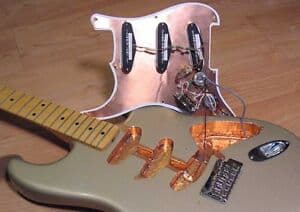
Unless your guitar wiring is extremely low quality, there’s not much to be done in that department to prevent hum. There is, however, the possibility of shielding the electronics cavity with copper foil tape to isolate the system from any unwanted interferences. This is called a Faraday cage.
A Faraday cage, however, will not be the answer in most cases, since guitars nowadays are pretty well factory isolated.
But anyway, if you think there’s a chance this could help, you should give it a try. If you know your way around electronics it will be a very simple mod for you.
What is a treble bleed circuit and how does it affect tone?
A treble bleed circuit added to your guitar’s electronics will allow for the frequencies in the high end to pass through the volume pot even if it’s turned down. This mod has no effect when the volume is set to 10, and only kicks in as you start decreasing it.
Many players that use the volume knob a lot to clean up the sound when playing with overdriven tones, for instance, decide to get this mod on their guitars so they don’t lose the treble snap they have at high volumes.
Conclusions and recommendations
Whether you are looking for a new guitar or planning on building or having one built, getting to know, at least at a high level how electronics work is, in my opinion, something that will help you make a better informed final decision.
However, here in GearAficionado, I always say that you should try out every instrument before buying it if you have the chance.
If it’s within your reach, try to get to play completely different guitars to clearly understand where the variation lies, and then start checking out ones closer to the one you preferred the most.
Particularly, I think that when you get to listen to how a treble bleed circuit works, if you are someone that usually tweaks the volume knobs a lot, you wouldn’t ever want a guitar without one ever again.
Finally, don’t forget to have fun. Technicalities for some people get the joy out of getting a new piece of gear. You don’t have to know it all about something that makes you smile. Just go and play the instrument that feels best to you.

Hello there, my name is Ramiro and I’ve been playing guitar for almost 20 years. I’m obsessed with everything gear-related and I thought it might be worth sharing it. From guitars, pedals, amps, and synths to studio gear and production tips, I hope you find what I post here useful, and I’ll try my best to keep it entertaining also.

